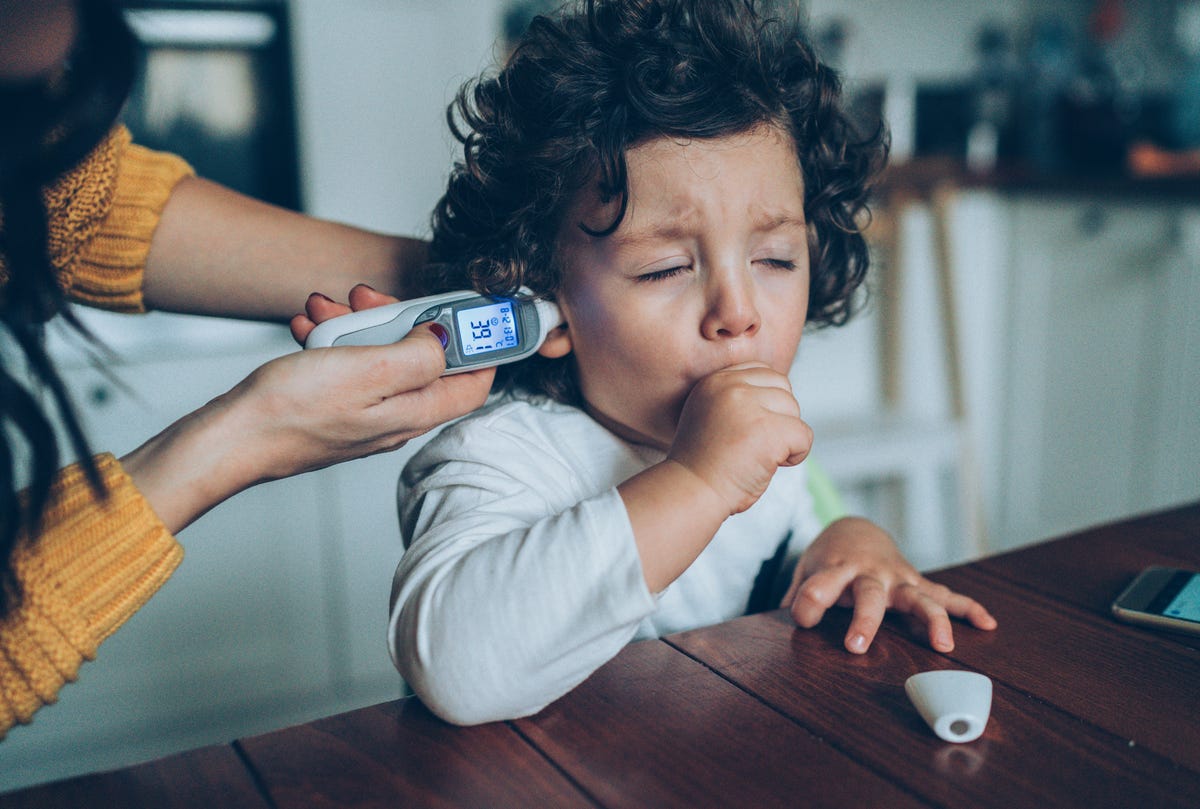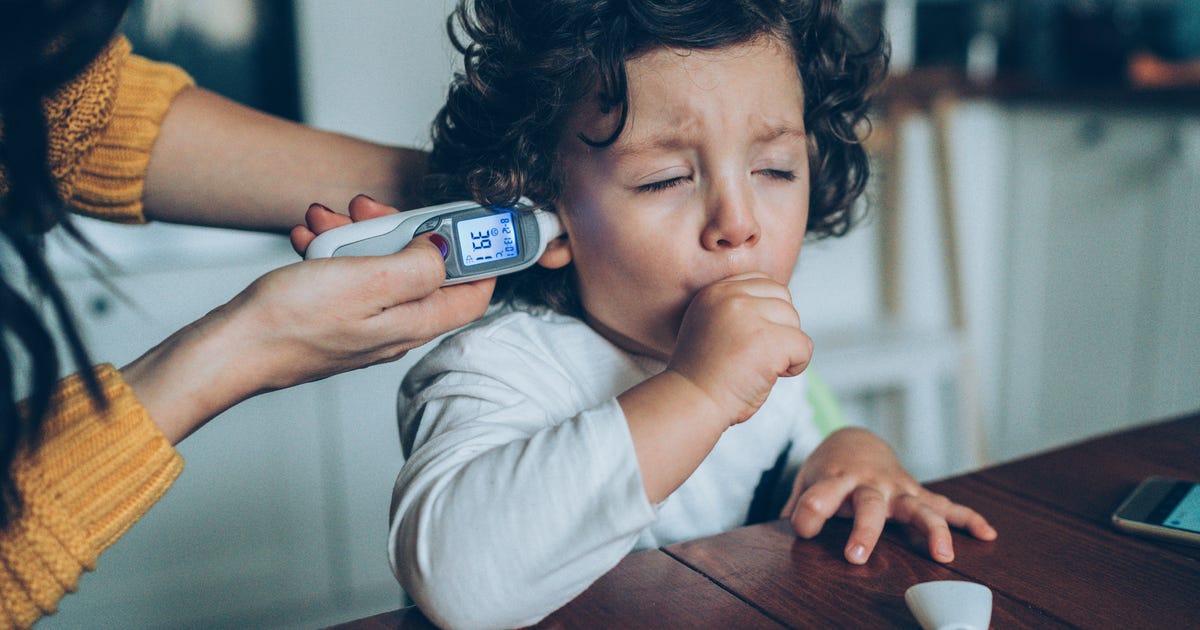Respiratory viruses like COVID-19 and influenza often spread and peak during winter, when people travel for the holidays and spend more time indoors and breathing the same air. We’ve already been warned that we are likely in for a rough flu season this year, as public health measures like mask-wearing are phased out after a few years of COVID-19 precautions. But parents could be especially concerned now amid reports of more children than usual getting sick with respiratory syncytial virus, or RSV, and infection waves starting earlier than normal.
Anyone can get RSV, but babies, children under age 5, older adults and people who are immunocompromised are especially vulnerable to severe RSV, which can cause pneumonia or bronchitis and require hospitalization. While almost all children will have at least one RSV infection before their second birthday and most will recover at home, it’s important to know the signs of a more severe infection in order to get the care you need.
What is RSV? How is it spread?
Respiratory syncytial virus is a common respiratory virus, which means it’s spread to others through tiny droplets from the nose or throat of an infected person. You get it when these droplets get into your eyes, nose or throat, either through contact with someone who’s sick, or by touching a contaminated surface then touching your eyes, nose or mouth.
According to the Centers for Disease Control and Prevention, the virus lives on hard surfaces (like cribs) for hours. RSV doesn’t live quite as long on soft surfaces, like skin or tissues. According to the CDC, it is the most common cause of bronchiolitis and pneumonia in babies under age 1.
Can adults catch RSV from kids?
Yes. Children commonly get RSV at school or day care and bring it home to other family members. Most adults, however, will either have mild or no symptoms of RSV.
Some adults, including older adults, folks with compromised immune systems or adults with lung or heart issues may have more severe illness or complications.
What are the symptoms in children and babies?
Symptoms usually show up around four to six days after getting infected or exposed, per the CDC. Common signs include:
- Runny nose
- Sneezing
- Decreased appetite
- Coughing or wheezing
- Fever
In very young infants or babies, however, the only symptoms may be irritability and fussiness; decreased activity or acting more tired than normal; or troubled breathing, including pauses in breathing.

Filadendron/Getty Images
Signs you should take your child to the hospital
If you or your child has only mild symptoms, extra treatment probably won’t be necessary outside of your home. But according to Cleveland Clinic, your child may need to receive intravenous fluids (have an IV) if their rapid breathing is preventing them from drinking and staying hydrated. According to the clinic, about 3% of children with RSV will require a hospital stay, and most will be able to go home within two to three days.
If your child is having a hard time breathing, they can’t drink or their symptoms are getting worse, that’s when you should call your doctor, the CDC says. Very young infants (under six months), babies who were born premature, and children who have weakened immune systems, neuromuscular disorders (trouble swallowing or clearing mucus) as well as other health problems have a greater risk of severe illness from RSV.
If you’re an older adult, are immunocompromised or have an underlying health condition, you may also be at higher risk of severe disease from RSV. If you or anyone around you is having a hard time breathing, always seek emergency care or medical care right away.
Treatments for RSV
RSV is a viral infection, which means antibiotics won’t work. Treatment for RSV is typically supportive, and over-the-counter medications (but never aspirin for children) may help relieve common symptoms like cough or congestion. You should consult your doctor before giving your child any drug, even non-prescription, because not all medication ingredients are safe for children and their smaller, growing bodies.
High risk children that are severely ill are sometimes treated with an antiviral Ribivirin and intravenous immunoglobulin. Treatment may also be considered for severely ill immunocompromised adults. The vast majority of patients do not require these interventions.
For high-risk infants and children preventative strategies are available, there is a monoclonal antibody available called Palivizumab. It’s given in monthly injections during RSV season and meant for children who are at higher risk of being hospitalized. Some eligible children would be babies who were born very premature (before 29 weeks), young children who are immunocompromised or have other health conditions, like heart disease or neuromuscular conditions.
If you believe your child is at high risk and might be eligible for the treatment, reach out to your doctor.
Is there a vaccine?
There’s not a vaccine for RSV yet, but scientists are working on it. Pfizer announced promising results from its global trial this week, which found that its RSV vaccine, when given to a pregnant person, was about 82% effective at preventing severe disease in babies who were born to them during the first three months of life. It was about 69% effective during the child’s first six months of life.
Johnson & Johnson has also started international trials of its vaccine in older adults.
How to avoid RSV
Because RSV is a respiratory virus, a lot of the same health precautions we take for other viruses will cut down the risk of you or your child getting it. This includes avoiding contact with people who are sick or have symptoms, avoiding crowded indoor places, and washing your hands before eating or touching your face.
For babies and younger kids, prevention could extend to not allowing other people to kiss, hold or touch your baby if you’re concerned about contracting the virus. (You can also ask them to wash their hands and wear a mask when holding your baby.) Ideally, the CDC says that people with any cold-like symptoms should avoid being around children at higher risk for RSV.
The information contained in this article is for educational and informational purposes only and is not intended as health or medical advice. Always consult a physician or other qualified health provider regarding any questions you may have about a medical condition or health objectives.

